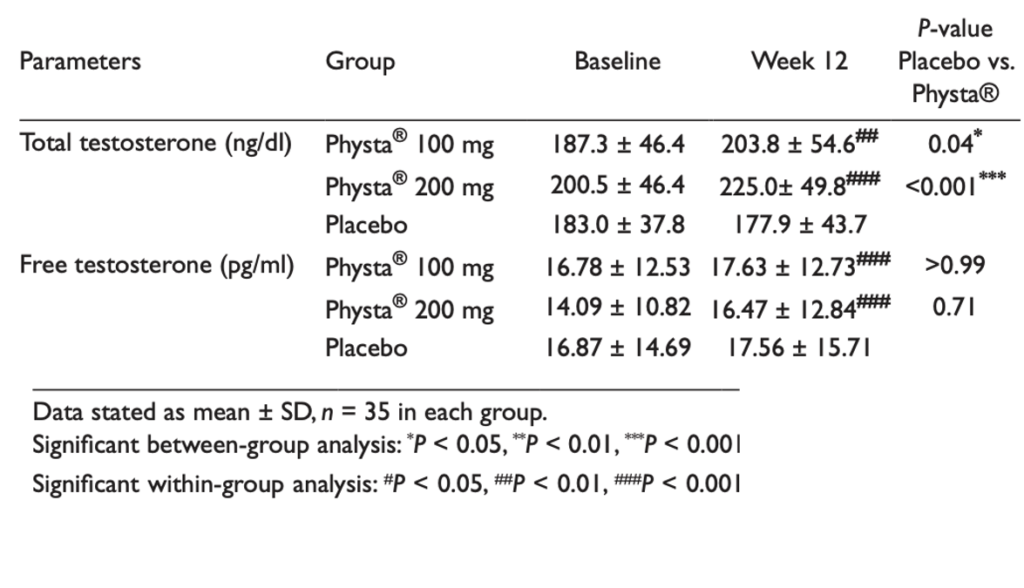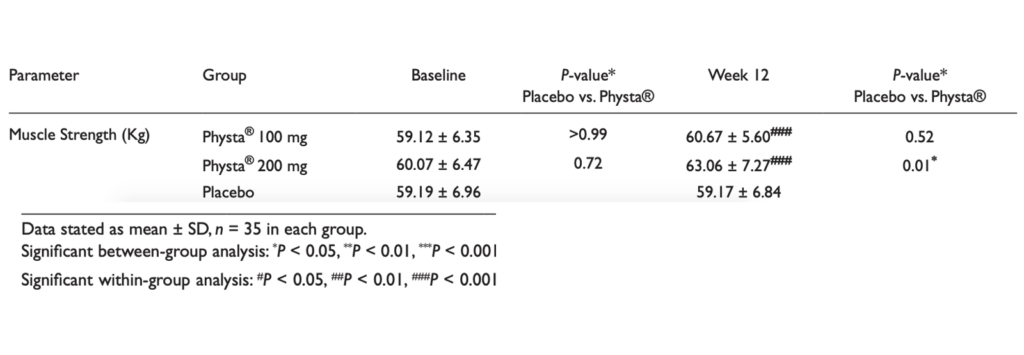Clinical Study Shows Tongkat Ali Raises Testosterone and Increases Strength in Older Men
Older men supplemented with root extract from the plant Eurycoma longifolia (a.k.a. Tongkat Ali) have increased testosterone and strength, and reduced symptoms of aging and fatigue.
Highlights:
- Twelve weeks of 100 mg or 200 mg of Eurycoma longifolia (EL) increases total testosterone in older men with low total testosterone.
- 200 mg, but not 100 mg of EL increases muscle strength.
- EL improves perceived symptoms of aging and fatigue, suggesting improved quality of life.
With aging, our bones and muscles weaken as body fat accumulates, all while our immune system declines. These symptoms can be attributed to hormonal changes, including decreased testosterone. Low testosterone levels are common in older men, but now researchers may have found a way to increase testosterone without direct hormone stimulation or replacement.
Researchers from Biotropics Malaysia, a company that sells Eurycoma longifolia (EL) as a supplement called Physta Tongkat Ali, report in Food & Nutrition Research that EL raises testosterone and increases muscle strength in older men. Based on two questionnaires, Chinnappan and colleagues also show that EL improves symptoms of aging and fatigue.
Tongkat Ali Raises Testosterone, Increases Strength, and Improves Quality of Life
Chinnappan and colleagues separated 105 men with low testosterone (less than 300 ng/dL) ranging from 50 to 70 years old into three groups. For twelve weeks, one group took a placebo, another group took 100 mg of EL, and the other group took 200 mg of EL. Compared to the placebo, both 100 and 200 mg of EL increased total testosterone, which includes testosterone bound to proteins.
Free testosterone was not different between the placebo group and both EL groups. However, free testosterone increased within each of the EL groups, while it did not significantly change in the placebo group. Free testosterone is not bound by proteins and is therefore available to bind androgen receptors, allowing for testosterone’s effects, including the promotion of muscle growth and strength.

To measure strength, Chinnapan and colleagues used a Back-Leg-Chest (BLC) dynamometer. This device measures the force produced by the back, leg, and chest muscles. It was found that 200 mg, but not 100 mg of EL increased muscle strength compared to the placebo group. Additionally, within each EL group, strength increased, while strength did not significantly increase in the placebo group.

The Aging Male Symptoms (AMS) scale was developed to assess the symptoms of aging in men. It consists of 17 questions that ask to rate the severity of perceived issues such as mood, energy levels, and libido. The Fatigue Severity Scale (FSS) consists of 9 questions asking to rate the severity of issues concerning motivation and fatigue. Lower AMS and FSS scores indicate less severe aging and fatigue symptoms, respectively.
Both 100 and 200 mg of EL reduced AMS and FSS scores compared to the placebo group. Additionally, within each of the EL groups, the AMS and FSS scores decreased after 12 weeks, whereas these scores did not significantly decrease in the placebo group. These findings suggest that EL improves quality of life, as high AMS and FSS scores reflect hindrances in daily living.
Can Tongkat Ali Reverse Male Aging?
A recent meta-analysis reports studies showing that Tongkat Ali increases testosterone in older adults with low testosterone and middle-aged adults with low testosterone, suggesting that Tongkat Ali is effective for those with low testosterone. However, Tongkat Ali does not seem to increase testosterone in middle-aged males who exercise, suggesting that exercise may have similar effects to Tongkat Ali. Therefore, Tongkat Ali may be beneficial for sedentary older adults with low testosterone and may alleviate certain aspects of aging, such as muscle weakness.
Still, Stanford scientist Dr. Andrew Huberman has stated that Tongkat Ali can raise testosterone by 100 to 200 ng/dl. In a discussion with podcaster Joe Rogan, he says that Tongkat Ali may be beneficial for individuals in their 40’s while diet and exercise may be beneficial for individuals in their 20’s and 30’s.
Model: Older adults with low testosterone
Dosage: 100 mg or 200 mg Tongkat Ali (Physta)

